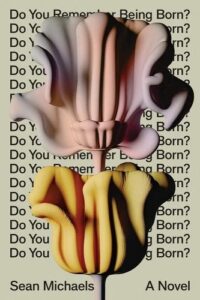This first appeared in Lit Hub’s Craft of Writing newsletter—sign up here.
In 2019, I began writing a novel with generative AI. ChatGPT was still three years away from release, but there were backdoor methods for accessing GPT-2, an early version of the technology that undergirds it. I had been inspired by the story of Marianne Moore, the great becaped and tricorned poet, who—at age 67—agreed to work with Ford to try to name their new car. (“Utopian Turtletop,” she proposed. “Mongoose Civique.” They went with Edsel.) In my book, a 75-year-old poet (with cape and tricorne hat) travels to California and spends seven days working with a sentient (?) AI named Charlotte. At the time, I imagined it would take place in the future.
Just as my fictional poet was working with Charlotte, I realized, the new book could itself be “infiltrated” by AI: here and there, indicated by subtle formatting choices, I would integrate computer-generated text. Some of it would be bland, other parts ungainly, but also, I hoped, there would be places where modern algorithms’ curious choices might trouble the reader’s certainties.
In 2023, people’s experience with high-quality Large Language Models is mainly through chat apps, where the visitor is plunged into dialogue with a cheerful (albeit censorious) AI character. That interlocutor—the dumb/smart/maddening bot inside ChatGPT or Bing—is actually just a construct: as you might know, the core software is only interested in predicting the next word in a string. OpenAI has worked hard to refine and constrain ChatGPT’s tone; without those constraints, the technology has a surprisingly nimble grasp or prose style. Just as image generators like Midjourney can capture aspects of Wes Anderson’s visual aesthetic, or imagine Jodorowsky’s Tron, even 2019-era text generators could complete my sentences—or expose my stylistic quirks—with unsettling ability.
The first time the AI infiltrates the novel is on page 9, just after my protagonist, Marian, arrives at the headquarters of the Big Tech company that has commissioned her.
… I found myself reflecting on the Company’s lack of a front door. Meaning they were never closed, not ever, not on Christmas Day or at two a.m. or the morning after their annual staff party. At all hours they were open, available, like the Company’s website or their software, their servers <mark>twinkling</mark> in a vault.
The very first time I wrote those lines, I used “thrumming” to describe the servers. Thrumming! That florid, cringey cliché. What would be better? I wondered. Buzzing? Humming? I tentatively fed several pages of my manuscript into the AI, ending with that sentence—“…like the Company’s website or their software, their servers”—and I hit “Submit.”
“Twinkling.” That was the suggestion. It was different, it was interesting, it was very slightly wrong. Not sonic but visual, evoking stars and Xmas lights—but the server lights might twinkle, sort of? Their lines of flashing LEDs?
I liked it because it was surprising, but also awkward—the kind of choice I didn’t feel like I would make, a human. The sort of word, in its little highlighting box, that might make the reader pause and think, What’s this? Who’s written this? Is it someone else?
Over the months and years to come, I’d spend many, many, many more hours feeding words into an online form, nudging a neural network toward literature. Most of the time it felt like collaborating with a slot machine—yanking over and over at its arm, hoping for a row of cherries. GPT proved nearly useless for poetry (of which there is a lot in the book), so I worked with an engineer named Katie O’Nell to build a custom model. There too, the results were deeply unreliable: it could take more than a hundred generations to find one that I appreciated.
Rarest of all, and most difficult to acknowledge, were the occasions when this greedy collection of mathematical rules presented me with an answer that made me pause for a moment, like a traveler who strays upon a fawn.
But what was striking about all this software was its limitlessness. Again and again and again I could roll the algorithmic dice; every time, it had some fresh image or simile, tirelessly. At times, I chose the instances where the AI proffered something obvious, or banal; at other moments, what compelled me was the alien, the strange, the unforeseen. Rarest of all, and most difficult to acknowledge, were the occasions when this greedy collection of mathematical rules presented me with an answer that made me pause for a moment, like a traveler who strays upon a fawn.
Goose pimples stippled my <mark>skin</mark>..
Outside our windows, <mark>white light collected and dispersed</mark>.
I closed the book and imagined breaking it in two, <mark>feeling the spine snap between my thumbs</mark>.
The roses’ color was <mark>affected by the blade</mark>.
Throughout, this work required my discernment. It required my framing and my vision. But the deepest challenge that will be posed to artists by AI, besides the pressing questions of dollars and cents, is this: what will we do with its work when it is good? How will we reckon then with what this tool can do? It’s easy to brush off AI-generated art when it’s trite or awkward or mediocre, a “blurry JPEG” of something greater. But I’ve spent time in the trenches with Large Language Models, and I don’t think their conjurations will all be so easily dismissed.
The preceding day’s work was a collection of glass cathedrals. I reread it with alarm. Turns of phrase I had mistaken for beautiful, which I now found unintelligible. Charlotte had simply surprised me: I would propose a line, a portion of a line, and what the system spat back upended my expectations. I had been seduced by this surprise. <mark>I had mistaken a fit of algorithmic exuberance for the truth.</mark>
__________________________

Do You Remember Being Born? by Sean Michaels is available now via Astra House.
